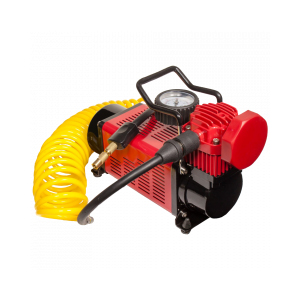High-Quality Oil Seal Manufacturing Solutions for Enhanced Performance and Durability in Various Industries
Understanding Oil Seal Factories Production, Importance, and Applications
Oil seals, also known as grease seals or rotary seals, play a crucial role in the performance and longevity of machinery and vehicles. They are designed to prevent leakage of lubrication, oil, or grease while also keeping dirt, dust, and other contaminants out. This article will explore the inner workings of oil seal factories, the significance of oil seals, and their diverse applications in various industries.
The Production Process in an Oil Seal Factory
The production of oil seals begins with the selection of high-quality raw materials, predominantly elastomers like nitrile rubber, fluorocarbon rubber, and silicone. These materials are chosen for their resilience to temperature fluctuations, chemical exposure, and wear and tear. In an oil seal factory, the manufacturing process involves several key steps
1. Material Preparation The raw materials are mixed with additives to enhance durability and performance. This mixture is then poured into molds designed to shape the seals.
2. Molding The prepared material goes through a molding process, usually done via compression molding or injection molding. This step is crucial in ensuring a perfect fit and forming the precise shapes necessary for the seals.
3. Curing After molding, the seals are subjected to a curing process, where they are heated to solidify the rubber and enhance its resilience. This step is essential for ensuring the seals can withstand various operating conditions.
4. Quality Control Each batch of oil seals undergoes rigorous quality control tests to ensure they meet industry standards. These tests may include checking for dimensional accuracy, hardness, and resistance to fluids.
5. Packaging and Distribution Once the seals pass quality checks, they are packaged and prepared for shipment to manufacturers or distributors.
oil seal factory

The Importance of Oil Seals
Oil seals are indispensable components in mechanical systems. They help maintain efficient operation by minimizing fluid leakage, which can lead to inadequate lubrication and subsequent damage to machinery. By preventing contamination from external elements, oil seals enhance the reliability and lifespan of equipment. In sectors such as automotive, aerospace, and manufacturing, the correct functioning of oil seals can be pivotal in ensuring safety and performance.
Moreover, oil seals contribute to energy efficiency. By preventing leaks, they reduce the amount of lubricant needed, translating into cost savings for businesses. Their role in maintaining consistent operating conditions helps optimize the overall functioning of machinery, furthering productivity and effectiveness in various industries.
Applications Across Industries
Oil seals find applications in a wide range of industries. In the automotive sector, they are used in engines, transmissions, and wheel bearings to prevent oil leaks and ensure smooth operation. In aerospace, oil seals are critical for maintaining the integrity of hydraulic systems, ensuring reliable functionality in various flight conditions.
Moreover, oil seals are essential in industrial machinery such as pumps, compressors, and turbines. They are also used in household appliances, such as washing machines and refrigerators, where they prevent leaks and enhance operational efficiency.
Conclusion
Oil seal factories are pivotal in producing these essential components that keep machinery running smoothly and efficiently. Through a meticulous production process, high-quality materials, and stringent quality control, these factories contribute to a wide array of industries. The significance of oil seals cannot be understated, as they not only extend the lifespan of equipment but also improve safety and performance across various applications. Understanding the role of oil seals is key to appreciating the intricate workings of modern machinery and the industries that rely on them.
-
The Ultimate Guide to Car Repair Kits: Tools and Essentials Every Driver Should Own
News Aug.01,2025
-
The Complete Guide to Oil Pan Gaskets: Sealing Engine Leaks the Right Way
News Aug.01,2025
-
Preventing Oil Leaks: A Complete Guide to Oil Pan Gaskets and Drain Seals
News Aug.01,2025
-
Everything You Need to Know About Oil Pan Gaskets and Drain Plug Seals
News Aug.01,2025
-
Essential for Car Owners: How to Use a Car Repair Kit to Deal with Minor Breakdown
News Aug.01,2025
-
Comprehensive Guide to Engine Oil Sump Gaskets and Related Seals
News Aug.01,2025
-
The Ultimate Guide to Boat Propeller Bearings and Trailer Wheel Bearings
News Jul.31,2025
Products categories















